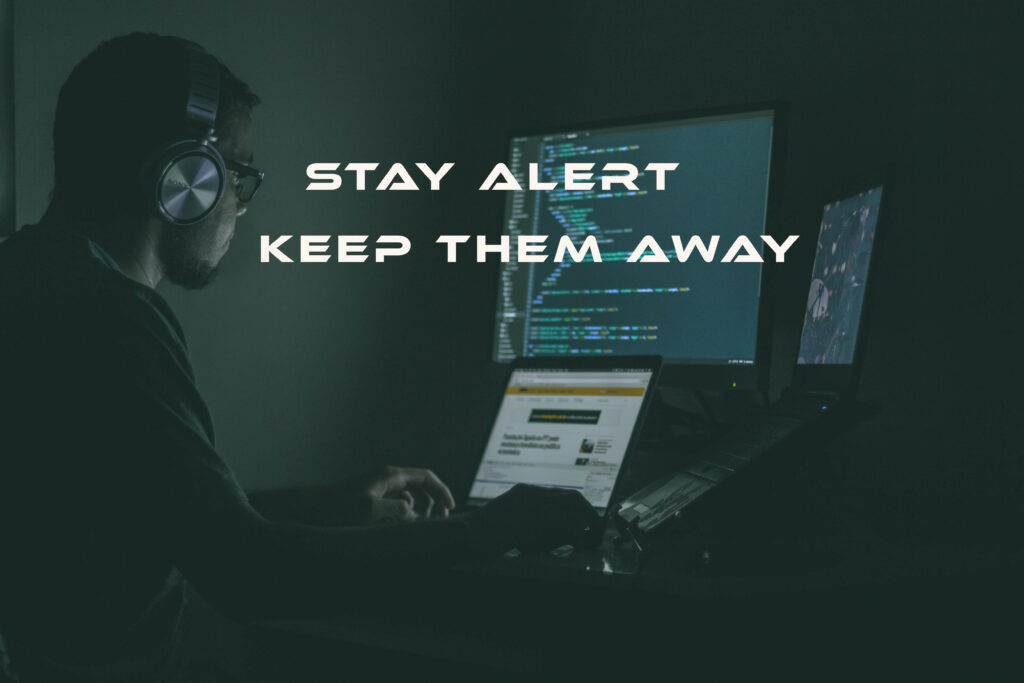A complete guide on how to stop hackers from accessing computer and the network
Today’s digital world enforces all business to practice Cybersecurity guidelines. Below are 10 guidelines every business must follow to stop hackers from accessing computer and the network. Here is a complete guide on stop hackers from accessing computer and the network.
The new era of online world poses the severe threat to the online businesses and individual’s personal data. It doesn’t matter whether you have personal computer, or you have small/medium or large size business. You must follow the cybersecurity guidelines to ensure the safety and security of your computers, data and network from online threats.
| Table of Content |
|---|
| 1. Use antivirus software 2. Setup a firewall 3. Use complex passwords 4. Update Operating system and other installed apps 5. Keep a copy of backup of your important documents 6. Be careful of spam email’s 7. Always use two factor authentication 8. Avoid unsecure websites 9. Encrypt drives and important document 10. Avoid installing pirated software’s |
1. Use antivirus software
Malware and spyware is everywhere nowadays. If you are connected to internet you are already vulnerable to the virus, adware, spyware, malware. So to protect your computer against these online threats you must install a licensed and standard Antivirus software. Few exam of standard Antivirus software are Malwarebytes, Microsoft defender, Kaspersky, Mcafee, Quickheal etc.
Antivirus software’s are not the complete protection for your computer however it plays key role to stop the initial threat. It is very effective when it comes to the active threats like virus, adware, spyware, malware etc. After installing the Antivirus software, run a scheduler scan of your computer.
2. Setup a firewall
Firewall is one of the most important feature of every OS (Mac and Windows) and it must be turned on. Firewall will help you to secure your computer from unauthorized access from outside world. Leaner here how to turn on built in the firewall on windows computer.
You can also purchase a hardware firewall like Cisco, Sophos or Fortinet etc It will give you more advanced security of your business environment. A broadband router is also having inbuilt firewall you must use the feature. If you don’t know how to enable the firewall on your existing broadband router. Kindly reach out to your internet service provider or your local IT guy to get it enabled. Security of network is one of the most important thing for your business.
3. Use complex password
Passwords are the first line of defense in securing the organizations from hackers access to data and services of the organization.
One of the critical aspect to protect self from hackers (Stop hackers from accessing computer and the network) is to use the complex password. For every organization there are different password policies but most of the organization follows the following password policies.
- Passwords should never be easily guessed, or it should not contain dictionary words such as “password”, “kitchen”, “automotive” or “Name” etc.
- Also, Passwords must be complex and containing at least 8 to 15 characters
- Passwords should be mixture of lowercase, uppercase, numbers and punctuation characters.
For example, “QAZewq@!23#$%” I suggest using, the online password generator tool. - Passwords should never contain personal or organization information, such as date of birth, phone number, company name, children name, hobbies name, favorite sports team, etc.
- Always use different passwords for different accounts/systems. Never use the same password everywhere.
- Users must not write passwords down or send passwords through email, Facebook, WhatsApp messaging services.
- Never share your password to anyone even if it is the boss of the organization.
- Never save a password on computer or excel. Instead use a password management tool like LastPass, KeePass, or Password Safe as it stores password in encrypted form.
4. Update Operating system and other installed apps
I know the updates are annoying. But it is very important to update the Operating system like windows 10, windows 11 or MAC PC. Day to day we hear the news of new version of ransomware virus, Vulnerabilities etc. Hence Your PC will became more vulnerable to the ransomware virus and malwares if you do not update the Operating system and the apps which are installed on PC like Microsoft Office, Adobe reader google chrome etc.
5. Keep a copy of backup of your important documents
Every business is dependent on the clients data and information. Hence keeping your clients data and information safe on your computer you must keep a copy of back. It is not only recommended when you face the online threats(virus), it is also important when your computer crashes or data got deleted unexpectedly. To keep your computer safe from hackers your must always keep a copy of backup of your important files. (Stop hackers from accessing computer and the network)

6. Be careful of spam email’s
Every year we see the new spike in global spam reports. In March 2021 alone there were 45.1% total spams reported read here more on spam reports Q3 2021 spam and phishing report | Securelist.
You can easily identify the spam emails, most of the spam emails ask you for personal information. Also, you must avoid the emails which are coming from known source, which asks for personal information, which includes the promotion or ask you for donation etc. You must Keep these Tips Handy to Identify Phishing Scams.
- Remove Unwanted/Suspicious Emails
- Never click on email or msg which includes Prizes and fame
- Avoid Donation emails
- Avoid Sharing your Personal Information online
- Don’t Click on Suspicious Links in email or other social media platforms like WhatsApp, Telegram
7. Always use two factor authentication
Two factor authentication are second layer protection for your account. In addition to your password it require two step verification by sending a numerical code to your Phone or email address.
It is easy for hackers to crack a password but when there is two factor authentication it becomes very complex for them to crack it. Two factor authentication is very successful in terms of securing you account / computer etc.
8. Avoid unsecure websites
Most of the malware comes from the unsecure website, it is when you download a software from third-party website. Since there are customized / crack software’s available on internet which brings a whole lot of virus and makes your computer vulnerable. Always download software’s from official website and use a licensed software. (Stop hackers from accessing computer and the network)
9. Encrypt drives and important document
Encryption is the only thing that gives us confidence of security. Even if hackers gain access to the computer or network, they can’t read any of the file or folder from on your computer since it is encrypted. You can easily encrypt the drive on MAC or Windows pc. Even you can use VPN for web traffic as the VPN help to send traffic over web in encrypted form. Even if cybercriminals gain access to the data they can’t read it.
10. Avoid installing pirated software’s
As mentioned above unsecure websites are great source of malware. A pirated software always contain the malware and virus. Since these pirated software’s are customized software’s it may contain malware, adware and payloads and ransomware. Payloads are used to gain access to any computer. Hence it is always recommended use the original software and keep software’s up to date.
Share this content:

Leave a Reply